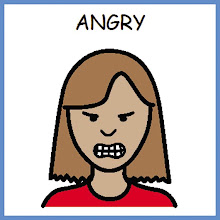Here is the original French version of my essay on religious education in French secular schools, which you can read in English here.
L'école laïque républicaine doit-elle aujourd'hui assurer un enseignement des religions?
« Comment comprendre le 11 septembre 2001 sans remonter au wahhabisme, aux diverses filiations coraniques, et aux avatars du monothéisme ?, » c’est la question que pose le Professeur Régis Debray dans son rapport sur « L'enseignement du fait religieux dans l'Ecole laïque » réalisé en février 2002[1]. Effectivement, la religion, que nous le voulions ou pas, nous entoure, et est utilisée pour justifier la fin et les moyens de nombreux actes. Le fait religieux doit-il donc être enseigné dans les écoles laïques françaises ?
Il existe de nombreux arguments pour l’intégration de l’enseignement du fait religieux dans les établissements scolaires français. Premièrement, comme Debray le souligne dans son essai « Le "fait religieux" : définitions et problèmes »[2], la religion est omniprésente et nous aide à comprendre les civilisations du monde, le fondement de l’histoire de l’humanité, ainsi que nos motifs politiques. La religion ne peut donc être ignorée.
Deuxièmement, on a pu constater une amplification du débat sur la religion ces dernières années, disputé entre deux camps principaux : les religieux et les sceptiques. La polémique est illustrée par l’article « God vs. Science » (ndlr : « Dieu contre la Science ») de Dan Cray dans l’édition du magazine « Time » en novembre 2006[3]. Dan Cray, dans son article, nous rappelle l’importance croissante des points de vue créationniste et darwinien dans le débat, et que la légitimité des religions est de plus en plus questionnée face aux avancements de la science et de la technologie. Nous pouvons aussi observer un essor dans la pratique religieuse, notamment de l’Islam en France[4]. L’importance du débat souligne l’emprise de la religion sur notre société. L’enseignement théologique dans l’école laïque devient donc nécessaire. Afin de pouvoir se former une opinion ou une croyance, ne faudrait-il pas d’abord s’être informé sur tous les angles? Avant de se proclamer chrétien, ne faudrait-il pas avoir au moins lu la Bible ? Avant de se dire athée ou agnostique, ne faudrait-il pas avoir étudié la théologie ou du moins avoir réfléchi aux origines et à l’existence de l’univers ? A moins qu'une politique d’indifférence face à « la grande question » soit prônée, l’enseignement neutre et aconfessionnel du fait religieux est nécessaire.
Cependant, bien qu'il y ait de nombreux raisonnements en faveur de l’enseignement du fait religieux, il existe aussi plusieurs arguments contre. Premièrement, certains affirment qu’une éducation laïque vise une absence totale du fait religieux dans un établissement. Quand bien même il serait objectif et de nature purement anthropologique et historique, l’enseignement de la religion n’aurait pas sa place à l’école. En effet, elle devrait être enseignée au catéchisme, à la synagogue, dans une mosquée. L’absence du fait religieux à l’école renforcerait donc l’idée de pluralisme et de laïcité de la République française.
Deuxièmement, l’enseignement du fait religieux pourrait influencer les croyances (ou manque de croyance) des élèves. De plus, certains déclarent qu’une objectivité complète face aux différentes religions pourrait offenser les élèves pratiquants, quelques solides que soient leurs croyances, car elle prêterait moins d’importance à leur(s) Dieu(x). Pourtant, s’ils se disent réellement religieux, ces individus ne devraient-ils pas être sereins face aux explications anthropologiques, sociologiques et scientifiques de leurs croyances ? D’autres ajoutent que cela pourrait même engendrer une indifférence face à Dieu chez certains. C’est possible, mais n’est-ce pas un ‘risque’ à prendre dans un monde en constante évolution, où les idéologies et croyances abondent, tellement que nous pouvons chacun changer d’avis à tout instant ?
Nous pouvons donc constater deux camps dans le débat sur l’enseignement du fait religieux dans l’école laïque républicaine. Il y a ceux qui s’y opposent : ils déclarent que la religion n’a pas sa place à l’école car son enseignement peut offenser et que ce genre d’enseignement peut être trouvé en dehors de l’école (encore qu'il soit difficile de trouver un établissement qui enseigne la théologie d’un point de vue anthropologique, sociologique, historique et scientifique pour les écoliers, collégiens et lycéens…). Puis il y a ceux qui y sont favorables : la religion est une partie intégrante de notre société depuis des millénaires ; loin de l’ignorer, nous devons l’assumer. De plus, afin d’adopter une opinion fondée, il faut s’informer et « être éclairé »[5]. Assurément, nous devons accepter que l’éducation religieuse devient importante dans le monde où nous vivons, sans qu'elle devienne subjective. Les polémiques grandissent, ainsi que les conflits au nom de la religion. Pour pouvoir vivre et comprendre ce monde où nous vivons, nous devons comprendre la religion et la science, et rejeter l’ignorance. Pourquoi la religion devrait-elle donc être taboue ? Richard Dawkins, biologiste revendicateur de la logique et de l’athéisme, se pose la question dans son ouvrage « Pour en finir avec Dieu »[6] qui fait rage. La plupart des gens répondront du tac au tac qu’il faut éviter tout conflit. Mais admettons-le, ces personnes n’ont pas vraiment réfléchi à la question. Car la réponse est simple : l’être humain a peur de toute vérité qui n’est pas la sienne.
[1] Régis Debray, Rapport à Monsieur le Ministre de l’Education Nationale « L’Enseignement du fait religieux dans l’Ecole laïque », http://lesrapports.ladocumentationfrancaise.fr/BRP/024000544/0000.pdf, février 2002
[2] Régis Debray, Publications : Actes des séminaires et universités d’été - Le « fait religieux » : définitions et problèmes », http://eduscol.education.fr/cid46334/le-fait-religieux-%A0-definitions-et-problemes.html, novembre 2002
[3] Dan Cray, God vs. Science, http://www.time.com/time/magazine/article/0,9171,1555132,00.html, novembre 2006
[4] Frédéric Chambon, Le repli communautaire des quartiers, vingt ans après la mobilisation pour l'intégration, http://www.lemonde.fr/old-societe/article/2003/02/11/le-repli-communautaire-des-quartiers-vingt-ans-apres-la-mobilisation-pour-l-integration_308815_3226.html, février 2003
[5] Régis Debray, Publications : Actes des séminaires et universités d’été - Le « fait religieux » : définitions et problèmes », http://eduscol.education.fr/cid46334/le-fait-religieux-%A0-definitions-et-problemes.html, novembre 2002
[6] Richard Dawkins, Pour en finir avec Dieu, Ed. Robert Laffont, mars 2008
Copyright © Caffeine Bubbles, 11 March 2010, Warwickshire, UK

